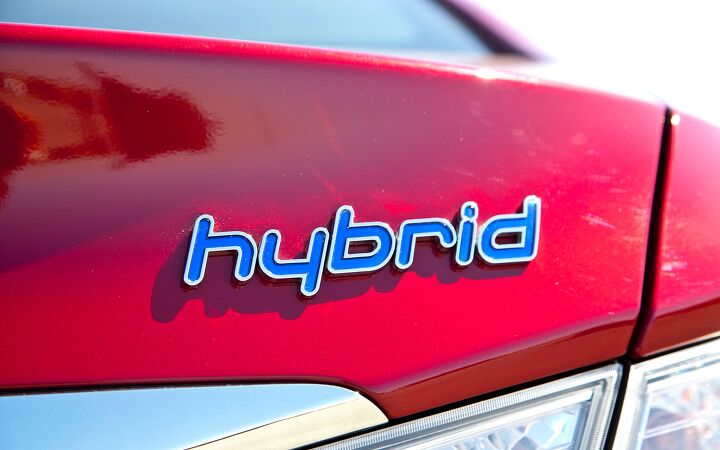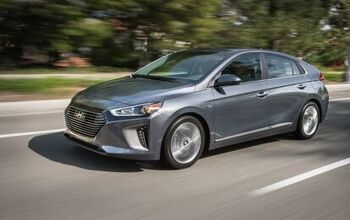Hyundai Developing Dedicated Hybrid To Battle Toyota Prius
Though one can already purchase a hybrid from Hyundai — the Sonata Hybrid, to be exact — the South Korean automaker is now planning to follow in the footsteps of Toyota and Honda by building a hybrid that always was from the get-go.
Reuters reports the Korean Prius will add onto Hyundai’s green portfolio, which also includes the Tucson Fuel Cell FCV, as well as act as a hedge against ever-tightening fuel economy and emissions standards. CEO Kim Choong-ho explained as much during the launch of his company’s latest premium sedan, the Aslan:
We will take the lead in the future by raising the competitiveness of our environment-friendly cars like hybrid-only cars, plug-in hybrid cars and fuel cell hydrogen cars.
Hyundai won’t be alone in bringing a new dedicated hybrid to market; Ford plans to do the same on a compact platform by 2019. Kim did not offer a timetable or other details about Hyundai’s hybrid, however.
Seattle-based writer, blogger, and photographer for many a publication. Born in Louisville. Raised in Kansas. Where I lay my head is home.
More by Cameron Aubernon


































Comments
Join the conversation
Just checked out the new Aslan ... very nice. I'm waiting to see the Tumnus before I decide though.
Being that they buck the trend and use an automatic transmission in their Sonata hybrid, I wonder if they will stay with that or move to a CVT.
The "math" of hybrids has been gone over a thousand times. Yes, you can buy a stripper economy car for cheaper, but that's not the point. And no, the Prius isn't that bad, plus it's larger (except for the Prius C). It's not a stripper economy car. In times of low gas prices, it may seem pointless, but gas prices are volatile (as can be seen by the rejoicing over "cheap" $3 gas when gas was closer to $1 not all that long ago). A hybrid buys a car that has a smaller environmental footprint (don't start on the batteries, like the steel and aluminum in normal cars doesn't also have to be mined) that also is insurance against future price spikes. And it's comfortable and easy to drive. I actually like the driving experience. It's different from a gas car, but often that's a good thing. It doesn't lurch at all, which is great especially in cities. I didn't realize I'd come to like it until I drove a Subaru Outback and found the behavior when I hit the gas weird. Both cars have comparable 0-60 times. Funny, that. The "video game" steering is not really an issue, either. It's not fast, it doesn't handle, it can't crawl over rocks or haul dirt (unless you attach a trailer). That's not the point. I've had some sporty cars - a Miata and a Prelude - and they did their thing very well. A Prius is not like that. But I can also fit four people and a ton of stuff, and get 50 mpg. Automakers need these cars as well, because the future is not set in stone. Another gas price spike and they will need them. I am sure there is at least one person at GM that realizes how stupid they were to get rid of the EV1, which could have put them ahead of every single other automaker on electric cars (they could have trumped Tesla and Nissan). These cars are normal now and will become much more attractive next time gas prices spike (which will happen, sooner or later). The ones who have put in the work will reap the rewards, as Toyota does with the Prius and Tesla with the Model S.
The Japanese auto makers do not fear German or American makes but they do fear Korean auto makers.They see real competition in their approach in making cars. They are not just" me too "type corporations.